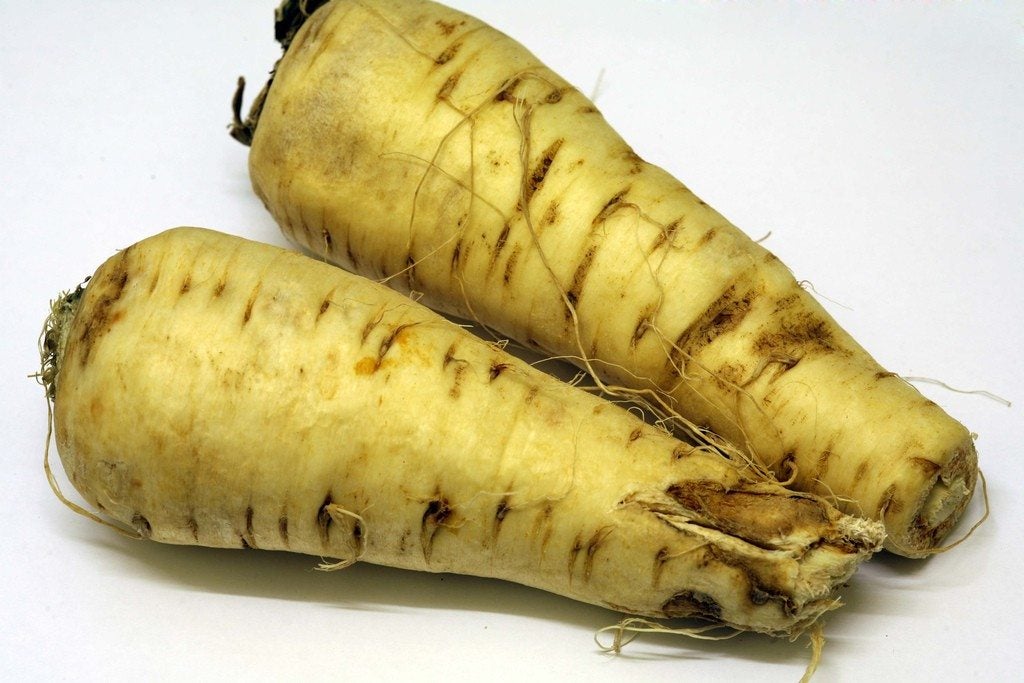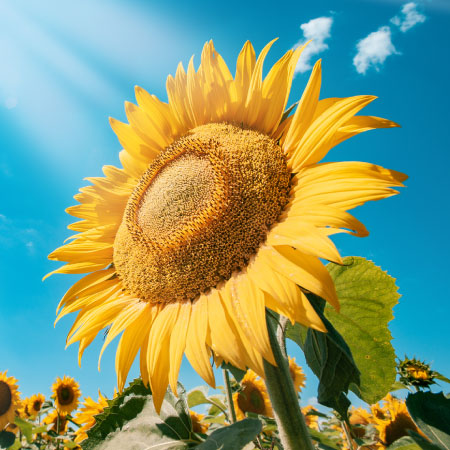How To Grow Parsnips - Growing Parsnips In The Vegetable Garden


Sign up for the Gardening Know How newsletter today and receive a free copy of our e-book "How to Grow Delicious Tomatoes".
You are now subscribed
Your newsletter sign-up was successful
When you're planning your garden, you may want to include planting parsnips among your carrots and other root vegetables. In fact, parsnips (Pastinaca sativa) are related to the carrot. The top of the parsnip resembles broadleaf parsley. Parsnips will grow to 3 feet (.91 m.) tall, with roots as long as 20 inches (50 cm.) long.
So now you might ask, "How do I grow parsnips?" How to grow parsnips - it isn't much different from other root vegetables. They are winter vegetables that like cool weather and can take as long as 180 days to mature. They are actually exposed to almost freezing temperatures for about a month before harvesting. When planting parsnips, remember that cool weather enhances the flavor of the root, but hot weather leads to poor quality vegetables.
How to Grow Parsnips
It takes from 120 to 180 days for a parsnip to go from seeds to roots. When planting parsnips, plant the seeds ½-inch apart and ½-inch deep in rows at least 12 inches (30 cm.) apart. This gives the growing parsnips room to develop good roots.
Growing parsnips takes 18 days for germination. After seedlings appear, wait a couple of weeks and thin the plants to about 3 to 4 inches (7.6 to 10 cm.) apart in rows.
Water them well when growing parsnips, or the roots will be flavorless and tough. Fertilization of the soil is also helpful. You can fertilize your growing parsnips the same way you would your carrots. Side dress with fertilizer around June to keep the soil healthy enough for growing parsnips.
When to Harvest Parsnips
After 120 to 180 days, you'll know when to harvest parsnips because the leafy tops reach to 3 feet tall. Harvest parsnips throughout the row and leave others to mature. Parsnips keep well when stored at 32 F. (0 C.).
You can also leave some of the parsnips in the ground until spring; just throw a few inches (7.5 cm.) of soil over your first fall crop of parsnips to insulate the roots for the coming winter. When to harvest parsnips in the spring time is right after the thaw. The parsnips will be even sweeter than the fall harvest.
Sign up for the Gardening Know How newsletter today and receive a free copy of our e-book "How to Grow Delicious Tomatoes".

Kathee Mierzejewski was with Gardening Know How in the very beginning, writing many of the site's foundational articles.